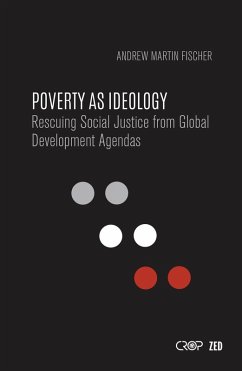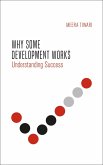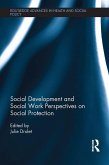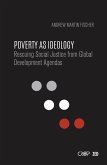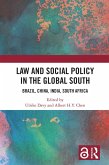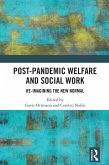Winner of the International Studies in Poverty Prize awarded by the Comparative Research Programme on Poverty (CROP) and Zed Books.
Poverty has become the central focus of global development efforts, with a vast body of research and funding dedicated to its alleviation. And yet, the field of poverty studies remains deeply ideological and has been used to justify wealth and power within the prevailing world order. Andrew Martin Fischer clarifies this deeply political character, from conceptions and measures of poverty through to their application as policies.
Poverty as Ideology shows how our dominant approaches to poverty studies have, in fact, served to reinforce the prevailing neoliberal ideology while neglecting the wider interests of social justice that are fundamental to creating more equitable societies. Instead, our development policies have created a 'poverty industry' that obscures the dynamic reproductions of poverty within contemporary capitalist development and promotes segregation in the name of science and charity. Fischer argues that an effective and lasting solution to global poverty requires us to reorient our efforts away from current fixations on productivity and towards more equitable distributions of wealth and resources.
This provocative work offers a radical new approach to understanding poverty based on a comprehensive and accessible critique of key concepts and research methods. It upends much of the received wisdom to provide an invaluable resource for students, teachers and researchers across the social sciences.
Poverty has become the central focus of global development efforts, with a vast body of research and funding dedicated to its alleviation. And yet, the field of poverty studies remains deeply ideological and has been used to justify wealth and power within the prevailing world order. Andrew Martin Fischer clarifies this deeply political character, from conceptions and measures of poverty through to their application as policies.
Poverty as Ideology shows how our dominant approaches to poverty studies have, in fact, served to reinforce the prevailing neoliberal ideology while neglecting the wider interests of social justice that are fundamental to creating more equitable societies. Instead, our development policies have created a 'poverty industry' that obscures the dynamic reproductions of poverty within contemporary capitalist development and promotes segregation in the name of science and charity. Fischer argues that an effective and lasting solution to global poverty requires us to reorient our efforts away from current fixations on productivity and towards more equitable distributions of wealth and resources.
This provocative work offers a radical new approach to understanding poverty based on a comprehensive and accessible critique of key concepts and research methods. It upends much of the received wisdom to provide an invaluable resource for students, teachers and researchers across the social sciences.

